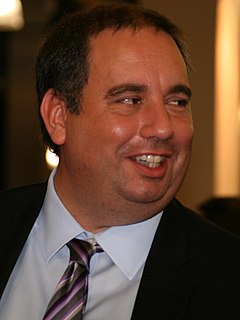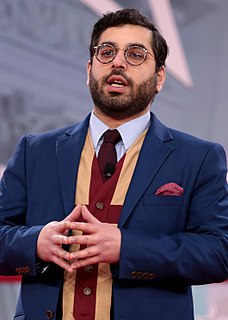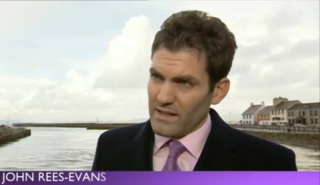Background
The party was seen as having two major factions. On one side were those who backed Nigel Farage; in the previous leadership contest these had favoured Steven Woolfe, and then, when he was not nominated, Diane James. On the other were those who wanted a more collegiate party, including figures like Suzanne Evans, the party's only MP Douglas Carswell and its former director of communications Patrick O'Flynn; this group had supported Lisa Duffy in the previous election. [4]
Woolfe was seen by many as the favourite in the election. [5] He admitted he had considered defecting to the Conservative Party following the previous leadership election; an argument concerning this with his MEP colleagues at a meeting in the European Parliament resulted in an altercation with Mike Hookem, after which Woolfe collapsed and had to be hospitalised. He claimed Hookem had punched him, an accusation denied by Hookem. A few days later, on 17 October 2016, Woolfe withdrew his candidacy and quit UKIP, describing the party as ungovernable without Farage as leader. [6]
The party's National Executive Committee was expected to meet on 10 October 2016 to set a date and rules for the leadership election, but later rescheduled the meeting to 17 October. [7] While party chairman Paul Oakden initially mooted that the election could be delayed until 2017, [8] the NEC opened nominations on 17 October, to close at midday on 31 October. Hustings were expected in early November, and ballots were to be sent out on 11 November. The result was to be announced on 28 November. [9]
Campaign
On 7 October, Woolfe and Raheem Kassam announced their intent to run for the leadership. [10] [11] Woolfe was seen as favourite to succeed Diane James, following his failure to submit his nomination in time for the previous leadership election. [12] Woolfe's campaign message was that UKIP had to "stand up for the ignored working class and secure a radically different political landscape in Britain". [10] On 6 October, Woolfe had been hospitalised following an altercation with fellow MEP Mike Hookem at the European Parliament. On 17 October, Woolfe withdrew from the contest and left UKIP, claiming the party was in a "death spiral". [10] Party chairman Paul Oakden stated this was "regrettable", and former party leader Nigel Farage said it was "unfortunate". [10]
Kassam, who given Woolfe's withdrawal was expected to be the first ethnic minority candidate for the UKIP leadership, stated that he was the person to end "corruption" at the top of the party and heal the party divides. [11] He sought to address cultural and social divisions across the country by eliminating Islamism in schools, prisons, and neighbourhoods. [13] He was criticised by The Huffington Post for his past comments on social media; for example, when he told people with whom he had disagreed on Twitter to "fuck off". Moreover, the language used to describe the transgender community caused disputes both internally and externally. [14] [15] He openly referred to himself as "Islamophobe of the Year" in 2014, and advertised 'Brits for Trump' shirts that he said he had made in response to requests. [16] Promoting himself as a "straight-talking" candidate, some of his tweets and social presence had been strongly condemned, including a derogatory comment following Scottish First Minister Nicola Sturgeon's miscarriage in 2014. [17] Rival candidate Suzanne Evans criticised him as "far right", whilst Nigel Farage responded, calling her "poisonous". [18] [19] As the self-described "Farage-ist" candidate, his ideas on the party's future included introducing the position of party CEO so the party can be "run like an organisation". Kassam's key message had been to prevent UKIP moving to the "squishy centre ground". [19]
On 12 October, the leader of UKIP in the London Assembly, Peter Whittle, announced his candidacy, [20] promising, if elected, to ensure Brexit is delivered. He further pledged that if UKIP under his leadership were to form a government, a priority would be ensuring national pride across the UK. Whittle proposed schools fly the Union Jack, a statement that angered some groups. [21]
John Rees-Evans, a former British Army soldier, declared his candidacy on 17 October. [22] He pledged to ensure that the UK left the EU, and said the government ought to be reduced in size and function. He stated his belief that the current "political class" in Westminster was detached from citizens, and pledged to make politics more transparent and open if elected UKIP leader. Rees-Evans caused controversy in 2014 when he claimed that a "gay donkey tried to rape my horse". He later clarified his comments as "playful banter with a mischievous activist" and apologised. [23]
A few days later, on 18 October, fellow AM David Kurten announced his intention to stand. His policies include protecting the green belt, banning Sharia law, [24] scrapping HS2, Crossrail 2 [25] and a third runway at Heathrow, introducing proportional representation for general elections in the UK, and making the House of Lords a fully elected, smaller second chamber. [26]
Two significant UKIP politicians, Paul Nuttall (former deputy leader) and Suzanne Evans (former deputy chair of UKIP and director of policy for the party, before being expelled following the 2015 general election) entered the contest on 23 October. [27] Nuttall described himself as the "unity candidate" for the party, able to "bring the factions together." [28] Nuttall's message was that UKIP could become the patriotic face of the working class, something shared by Kassam and Whittle. He said that UKIP could fill the "political gap vacated by what's left of the Labour party" under Jeremy Corbyn, who had "abandon[ed] his principles" over the EU, and promised to hold the government accountable over immigration. His key campaign message was to unify the party and to make the party the true "voice of the common man and woman". [28]
Evans' message was party "detoxification". [27] She is a member of the party faction that favours more centrist conservative views; her priorities for leadership included ensuring that the 1972 European Communities Act is repealed by the UK government, ensuring that UKIP led the electoral reform process, and bolstering the current Conservative government's stance on law and order. [29] Evans caused some disruption with her pledge to end the "Trump-styled rhetoric" in the party. This was seen by some, including former party leader Nigel Farage, as an indirect swipe at Raheem Kassam's campaign (whose logo was 'Make UKIP Great Again' similar to the 'Make America Great Again' of Donald Trump's 2016 presidential campaign). Evans has previously stated that she wished to see the UK's defence budget increased, foreign aid budget and energy bills reduced and corporate tax avoiders held accountable for their actions. [29]
Evans appeared on ITV's The Agenda on 26 October, where she was criticised by fellow panellist Jeremy Paxman over whether she had "compassion" regarding child refugees in Calais. She replied "of course I have compassion, but this system is being abused here, it's quite obvious" in reference to some refugees, who have claimed to be children but who are believed by some to be grown adults. [30]
Two candidates formally withdrew from the contest: Andrew Beadle on 13 October [31] and Bill Etheridge (who had come third in the previous leadership election) on 26 October. [32] Both argued that Paul Nuttall would be the most suitable candidate for leader, able to unify the party and help it move onto more "fertile ground." [32] On 30 October, David Kurten withdrew from the race; praising his fellow candidates, he stated that he would be "happy to work with any of the remaining candidates... on ensuring Brexit is delivered."
A 25 October survey of 91 UKIP councillors for The Times found 42% supported Nuttall and 22% Evans. Others receiving support were Raheem Kassam (9%), Douglas Carswell and Lisa Duffy (5% each), Patrick O'Flynn (4%), Bill Etheridge (2%) and Peter Whittle (1%). 8% said none of the above. [34]
Kassam withdrew from the contest, endorsing Peter Whittle, on 31 October. [35]



















